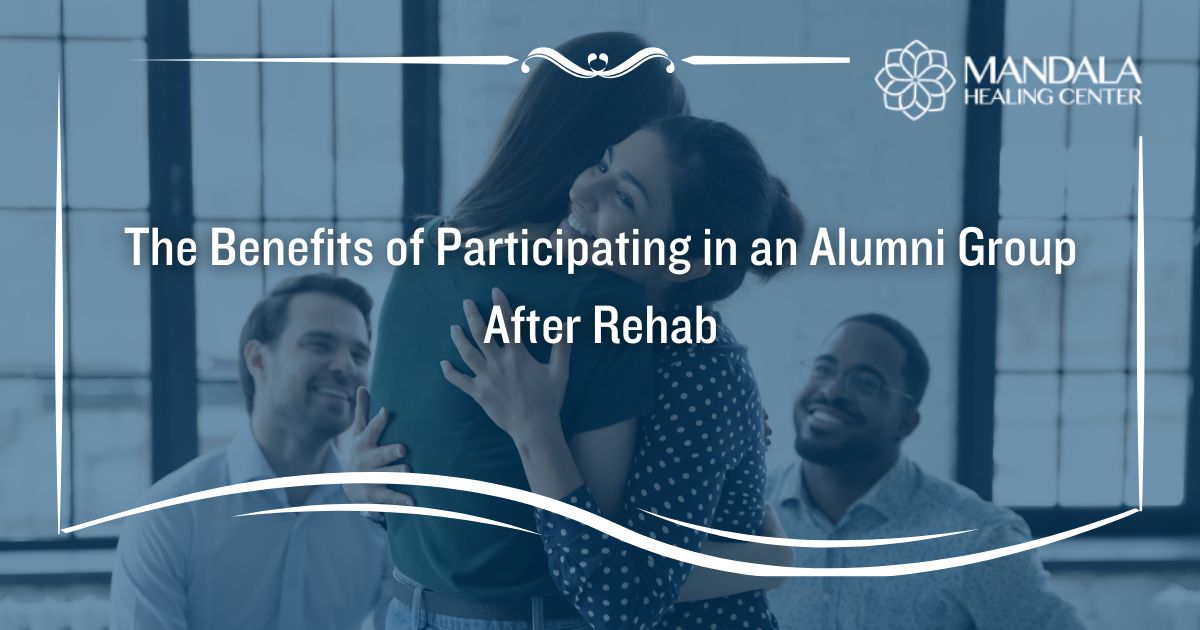According to The American Society of Addiction Medicine, “Addiction is a treatable, chronic medical disease involving complex interactions among brain circuits, genetics, the environment, and an individual’s life experiences.”[1] Addiction is a chronic disease, so individuals recovering from addiction must continually work to maintain their sobriety. In other words, recovery doesn’t end upon graduation from an addiction treatment program.
Leaving a drug rehab program can be confusing and scary. During addiction treatment, individuals are safe from outside triggers and kept accountable for their sobriety by their peers, doctors, and therapists. However, once rehab is over, their sobriety rests in their own hands. Without the proper coping mechanisms and support, it is easy for recovering addicts to fall back into old patterns of behavior.
Thankfully, there are tons of ways for recovering addicts and alcoholics to maintain their sobriety after treatment. Many addiction treatment programs in Florida offer alumni support groups for this very reason. Participating in an alumni group after rehab can help individuals stay sober.
What is an Alumni Group?
Addiction treatment programs like Mandala Healing Center understand that recovery is an ongoing journey. Alumni support groups were created to provide former patients with ongoing support after the completion of treatment. Typically, alumni groups host weekly meetings that are similar to a group counseling session. While group counseling is facilitated by a therapist, alumni support groups are run completely by alumni and some staff members.
Alumni support groups offer former patients an array of beneficial services, including a community of support and fellowship. Other services that alumni groups offer include:
- Weekly meetings
- Group volunteer opportunities like working at a soup kitchen
- Service opportunities within the alumni support group like the speaker or chairperson
- Sober anniversary celebrations
- Workshops for healthy coping mechanisms
- Community-building activities like cookouts
- Support and guidance from other alumni members
Alumni groups are designed to provide individuals with the community and support they need while transitioning from treatment to everyday life. By creating a supportive and caring sober community, former patients have a group of people they can depend on to be there when they need it the most.
What are the Benefits of Participating in an Alumni Group After Rehab?
Alumni support groups provide an array of benefits to individuals who have graduated from an addiction treatment program including the space to continue their healing long after their treatment program has ended. Some of the top benefits of joining an alumni group after treatment include:
Community Building Activities
In addition to weekly meetings, most alumni groups offer social gatherings that allow alumni members to create lasting connections with one another. These activities help recovering addicts realize that they can still have fun while they are sober. From beach days to volunteering at community centers or going on hikes and camping trips, individuals can expect an array of sober fun.
Examples of community-building activities that alumni groups host include:
- Beach days
- Attending sports events
- Volunteering for a cause
- Sober holiday parties
- Hiking or camping
- Barbeques
- Art or music-related events
A Supportive Community
Addiction treatment requires patients to be vulnerable. Patients have to address extremely distressing moments in their lives. For example, many individuals discuss their trauma during group therapy. This vulnerability allows patients to bond with their peers, creating relationships based on recovery from addiction, mental health conditions, and trauma recovery.
Alumni groups offer former patients the opportunity to continue the relationships they created during treatment. This provides a supportive community for individuals to depend on during times of need. This is an extremely important aspect of sobriety, as connecting with others has been found to foster long-term sobriety and recovery from addiction.
Helps Members Transition From Treatment to Everyday Life
Leaving the safety of a treatment center and transitioning back into everyday life can be extremely difficult. This is especially true for individuals who attend a long-term inpatient treatment program, as they become accustomed to the routine of rehab. Going to an alumni group after rehab helps patients learn how to cope with the stress of everyday life by offering access to sober living programs.
Sober living programs are transitional housing programs that help individuals get reacclimated to normal life after completing an addiction treatment program. When someone attends their treatment center’s alumni group, they can talk to other graduated patients and find the best sober living program for their own needs.
Learning Healthy Coping Mechanisms
Because relapse is prevalent among individuals in early recovery, alumni support groups emphasize the importance of healthy coping mechanisms. One of the main topics of discussion during an alumni meeting is how to cope with everyday triggers after finishing treatment and moving back home.
Some examples of healthy coping mechanisms that are promoted during alumni support groups include:
- Mindfulness exercises
- Meditation and breathwork
- Identifying triggers for addiction
- Continued individual therapy and group counseling
- 12-step support groups like AA or NA
- 24-hour addiction and mental health hotlines
- Self-care activities such as exercising, listening to music, and taking a relaxing bath
Find Help for Yourself or a Loved One Today
If you or a loved one struggles with the disease of addiction, it’s time to consider professional addiction treatment. Recovering from addiction and alcoholism requires a lot of hard work, personal dedication, and support. Thankfully, Florida rehab programs like Mandala Healing Center help patients learn accountability and teach them how to prioritize their sobriety.
With a combination of evidence-based addiction therapies, dual diagnosis treatment, relapse prevention planning, and alumni support groups, our treatment program provides patients with a strong foundation for recovery. Contact us today for more information on how to get started.
References:
















